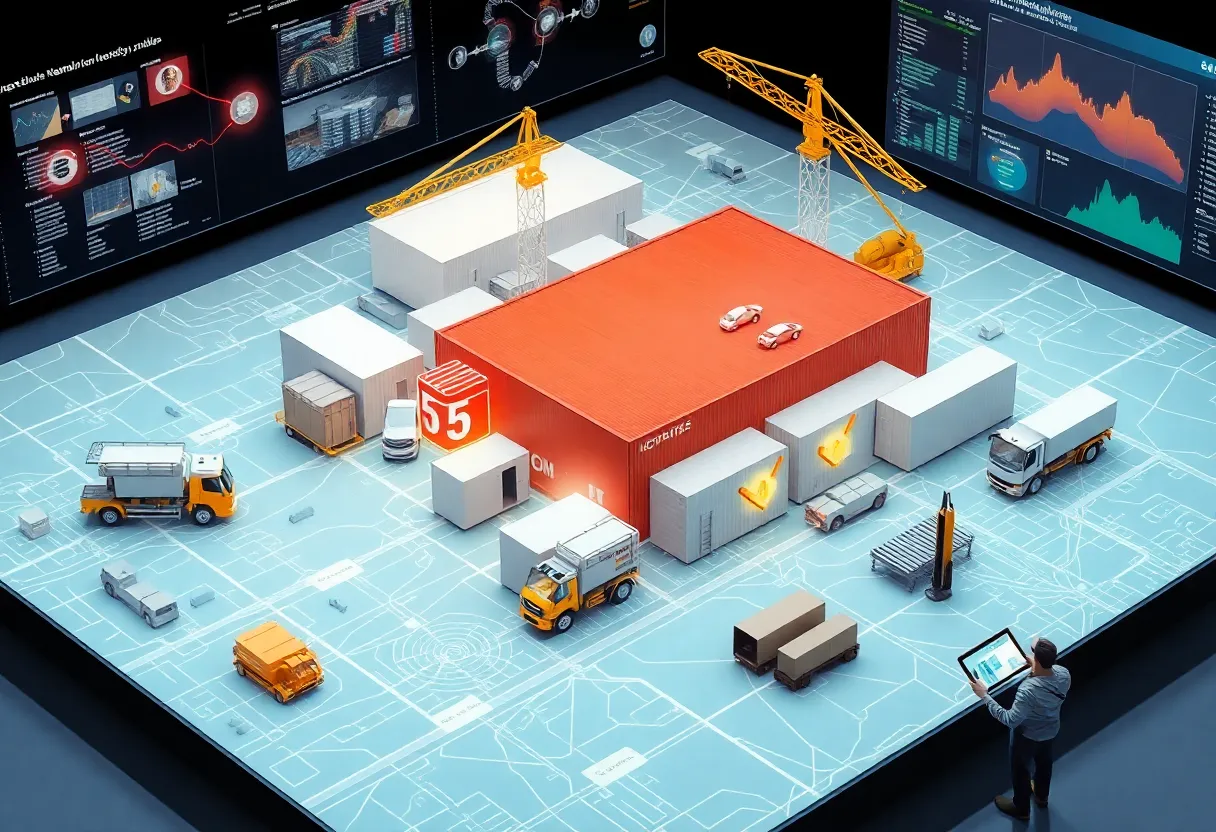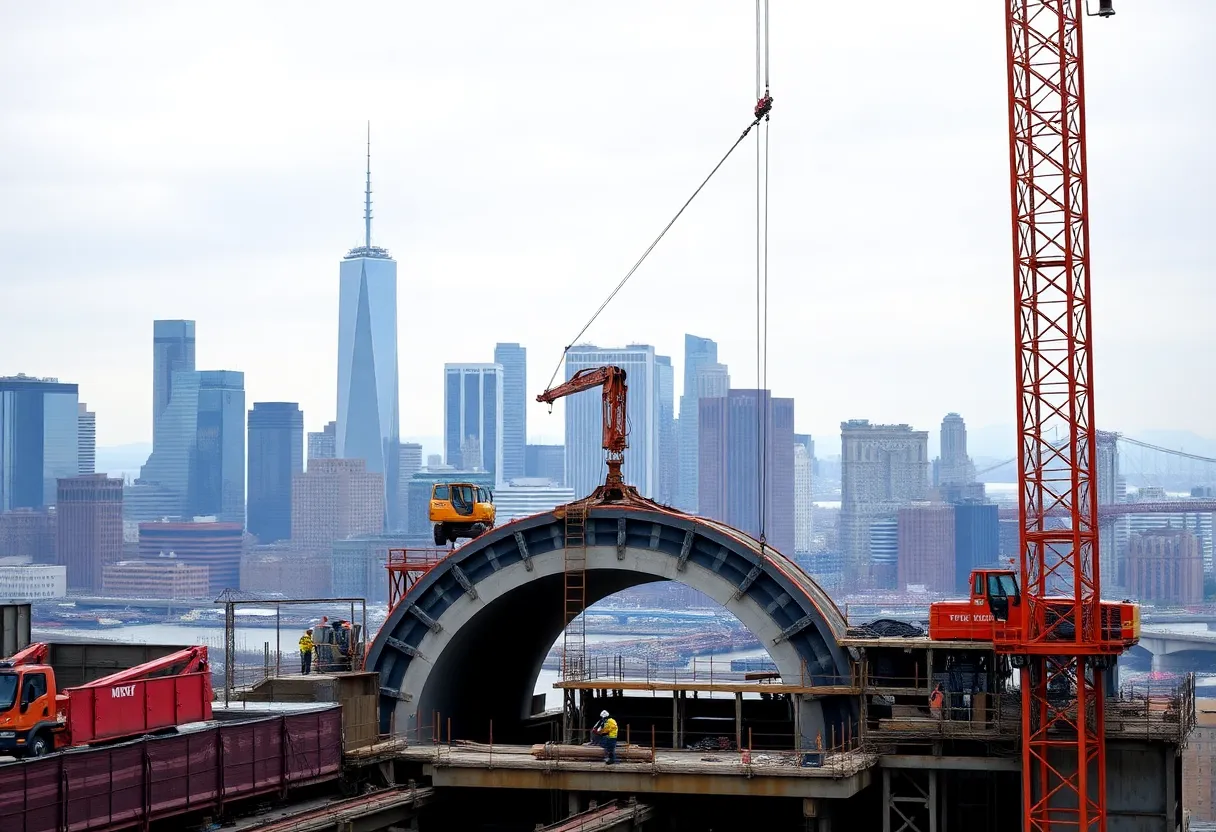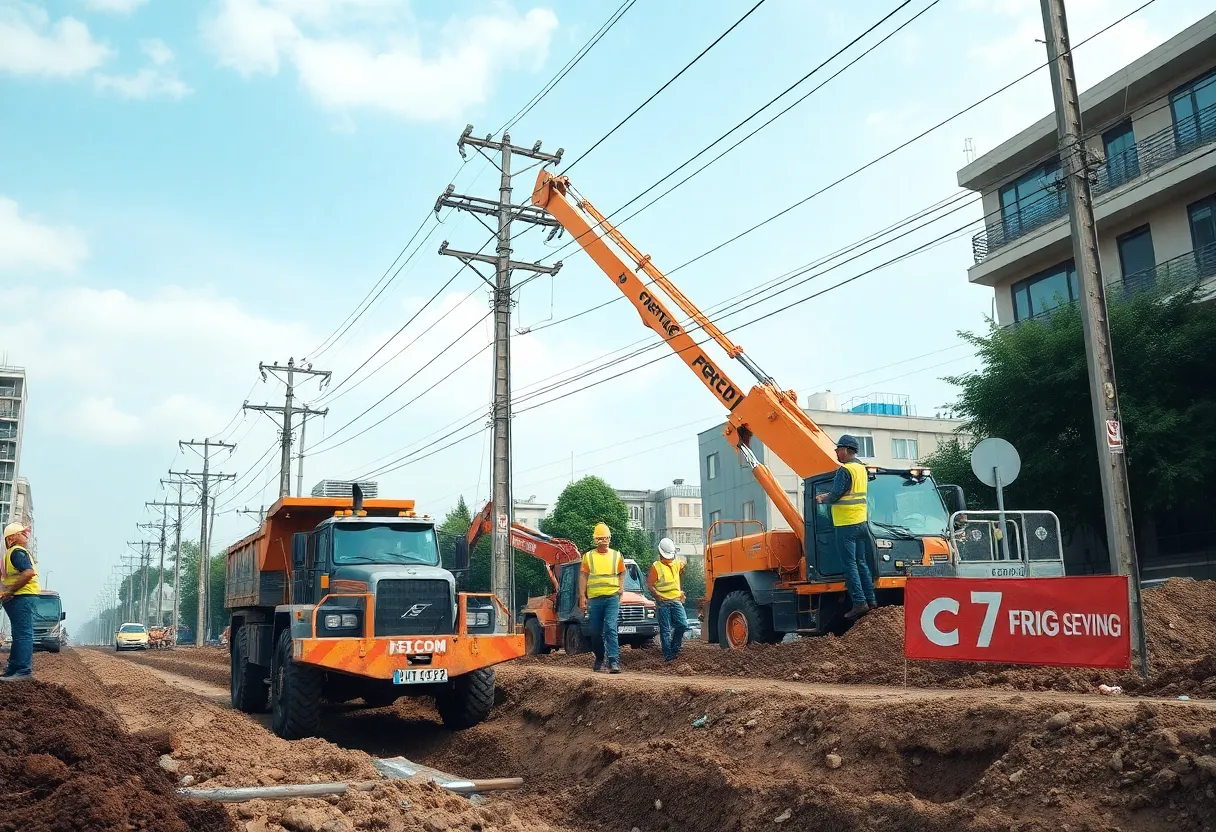Hanyang University ERICA, South Korea, August 19, 2025
News Summary
The researchers at Hanyang University ERICA’s School of Architecture & Architectural Engineering developed a digital twin-enabled facility management system (DT-FMS) for relocatable modular buildings (RMBs). The DT-FMS integrates BIM, IoT and GIS to create a live digital replica that supports real-time monitoring, logistics simulation, lifecycle performance analysis and reuse planning. A case study on a relocatable modular school in South Korea demonstrated improved module distribution, higher reuse potential, better management efficiency and potential reductions in operating costs and energy use. Organized into physical, digital and service layers, the platform enables data-driven decisions across design, transport, setup, operation and circular-economy reuse.
Hanyang University ERICA develops digital-twin facility management system for relocatable modular buildings
Researchers at the School of Architecture & Architectural Engineering at Hanyang University ERICA have developed a digital twin-enabled facility management system (DT-FMS) tailored for relocatable modular buildings (RMBs). The system links three established technologies—BIM (Building Information Modeling), IoT (Internet of Things) and GIS (Geographic Information Systems)—to support real-time monitoring, lifecycle performance analysis and logistics simulations for modular units.
Key findings and impact
The DT-FMS addresses major management and logistics challenges that often limit wider use of RMBs, a construction approach where buildings are assembled from prefabricated modules that can be transported and reassembled. RMBs are known for quick assembly, lower costs, smaller environmental footprints and safer construction sites. The new system aims to make those advantages easier to capture across multiple projects and site moves.
The integrated digital twin model combines robust 3D building models and comprehensive construction data from BIM, real-time sensor feeds from IoT devices, and geographic context from GIS. Together, these components enable effective logistics of modular units and location-based decision making, including simulated routes, placement plans and tracking of assets and crews.
How the system is organised
The DT-FMS is built in three management layers:
- Physical layer: real-time tracking and communication among physical items—modules, resources and people on site (stakeholders, engineers and workers).
- Digital layer: modelling tools, data integration and analytics that build and update the digital twin from BIM, IoT and GIS inputs.
- Service layer: user interfaces and decision-support functions that let managers monitor, control and interact with the system for planning and operations.
Practical test case
The research team applied the DT-FMS to a relocatable modular school system in South Korea. The case study showed that the framework improved decision making on module distribution and reuse, boosting management efficiency for the school. The team reports potential downstream benefits including lower operational costs and better energy use when the system is used across repeated projects.
Research record and leadership
Details of the study were published in Volume 176 of the journal Automation in Construction on 1 August 2025. The project was led by Associate Professor Yonghan Ahn of Hanyang University, with contributions from other faculty including Professor Dennis Nguyen. The research highlights how a tailored digital twin can extend circular economy approaches in modular construction by enabling reuse, reconfiguration and optimal relocation of units.
Related collaboration on communications research
In a separate development earlier in 2025, the university agreed a memorandum of understanding with a global network test vendor to collaborate on AI-RAN, 5G and 6G research at the Beyond-G Global Innovation Center on campus. Under the agreement, the vendor will supply wireless lab test solutions and expertise, and the university will join as an academic partner in 6G work. The Beyond-G center had been selected in 2024 for a national support project that provides large multi-year funding for next-generation communications research. The vendor’s lab tools include a 6G testbed and a NITRO® Wireless test and optimization suite, used for emulating radio access and core networks, realistic traffic and cyber scenarios to mirror live networks in the lab.
Why this matters
RMBs offer clear sustainability and speed advantages, but logistics and lifecycle management are barriers to broader adoption. By combining BIM, IoT and GIS in a digital twin framework that includes tracking, analytics and user services, the DT-FMS aims to lower those barriers. The approach can help owners and operators move from one-off deployments to repeatable, efficient cycles where modules are reused and relocated with less waste and lower cost.
Next steps
The research team recommends further field trials across different building types and larger logistics networks, and continued integration with telecom testbeds and lab tools to support connected, sensor-rich modular units. Wider use of the DT-FMS could also pair with national research on next-generation communications to support reliable connectivity for distributed modular buildings.
Frequently Asked Questions
What is a digital twin-enabled facility management system (DT-FMS)?
A DT-FMS is a digital copy of a real building and its systems. It uses 3D models, live sensor data and maps to monitor conditions, analyse performance and help managers make decisions.
What are relocatable modular buildings (RMBs)?
RMBs are buildings made from prefabricated modules that can be assembled, transported and reassembled. They cut build time, reduce waste and lower site impact.
Which technologies are combined in the DT-FMS?
The system integrates BIM for models, IoT for sensor feeds and GIS for geographic data and logistics planning.
What benefits did the school case study show?
The case study showed better decisions on where to place and reuse modules, higher management efficiency, and potential reductions in operating costs and energy use.
Is this linked to other research at the university?
Yes. The university is working with industry partners on testbeds for next-generation communications (AI-RAN, 5G and 6G), which can support connected modular buildings and reliable data flows for digital twins.
Key features and functions
| Feature | What it does | Benefit for RMB projects |
|---|---|---|
| BIM integration | Provides 3D models and detailed building data | Improves planning, clash detection and documentation |
| IoT sensors | Feeds real-time temperature, occupancy and equipment data | Enables live monitoring and faster maintenance responses |
| GIS mapping | Supplies location and route data for modules and teams | Supports efficient logistics and site placement |
| Three-layer architecture | Organises physical, digital and service functions | Makes the system easier to manage and scale |
| Logistics simulation | Models movement and reuse of modules across sites | Reduces transport costs and material waste |
Deeper Dive: News & Info About This Topic
Additional Resources
- IoT World Today: Researchers develop digital twin framework to streamline construction
- Wikipedia: Digital twin
- New Civil Engineer: Researchers develop digital twin technology for modular building management
- Google Search: digital twin relocatable modular buildings
- MSN: Digital twin system transforms management of relocatable modular buildings
- Google Scholar: digital twin modular buildings
- PR Newswire: Viavi and Hanyang University sign memorandum of understanding to advance 6G research
- Encyclopedia Britannica: Hanyang University
- Telecoms.com: Viavi and South Korean university team up to work on AI RAN, 5G and 6G research
- Google News: Viavi Hanyang 6G
Author: Construction NY News
The NEW YORK STAFF WRITER represents the experienced team at constructionnynews.com, your go-to source for actionable local news and information in New York and beyond. Specializing in "news you can use," we cover essential topics like product reviews for personal and business needs, local business directories, politics, real estate trends, neighborhood insights, and state news affecting the area—with deep expertise drawn from years of dedicated reporting and strong community input, including local press releases and business updates. We deliver top reporting on high-value events such as the New York Build Expo, infrastructure breakthroughs, and cutting-edge construction technology showcases. Our coverage extends to key organizations like the Associated General Contractors of New York State and the Building Trades Employers' Association, plus leading businesses in construction and real estate that power the local economy such as Turner Construction Company and CMiC Global. As part of the broader network, including constructioncanews.com, constructiontxnews.com, and constructionflnews.com, we provide comprehensive, credible insights into the dynamic construction landscape across multiple states.





